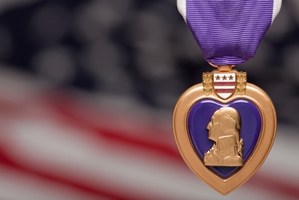Even when they function as intended, federal bureaucracies are inherently slow processes. For recipients of military honors, the time between their act of valor and their reception of the award can take months, if not years.
For Spc. Santiago J. Erevia and Sergeant First Class Melvin Morris, both Vietnam veterans, the process took almost half a decade. Erevia, Morris, Jose Rodela and 21 other deceased servicemembers will be awarded the Medal of Honor Mar. 8 after a federal review of the impact racial discrimination against Jewish-, Hispanic- and African-American soldiers had on the disbursement of the nation's highest military honor, Stars and Stripes reported. The review found that though all 24 servicemembers received the Distinguished Services Cross, their races were unfairly used a reason to keep them from receiving the Medal of Honor.
Making up for lost time
Erevia was providing medical care for injured troops in Vietnam in 1969 when the rest of his platoon pressed forward with an attack, Stars and Stripes explained. When another Viet Cong squad fired on his position, Erevia single-handedly neutralized four enemy bunkers with hand grenades and machine guns before returning to finish his medical treatment.
Morris, who was also active during 1969, evacuated two fellow soldiers from behind enemy lines while destroying several enemy bunkers and suffering three gunshot wounds in the process.
Despite their actions, a 2002 federally-mandated review of 6,500 Distinguished Services Crosses found that Erevia and Morris' medals were awarded in error. Prejudices against their heritages kept them from receiving the nation's highest military honor.
Of the 24 servicemembers scheduled to be honored at the White House, 21 will be awarded the Medal of Honor posthumously. Some of those veterans passed away over the years after their tours of duty, while others die in the line of fire, some even as they were committing the acts that gained them the recognition they are about the receive.
Waiting for the call
Morris, now 72-years-old, moved back to Florida for his life after service and was at home in May 2013 when he got a call from the White House, NPR reported.
"He says a high government official wants to speak to you. And put him on the line, he say: This is President Obama," Morris told NPR in an interview. "Man, and I dropped down to my knees."
Morris explained how the president apologized on behalf of the U.S. government for its oversight of his actions in Vietnam, but that he would be receiving the Medal of Honor as soon as possible.
Morris insisted that as far as he was concerned, his race was never an issue during his service. While he does not look fondly back at his experiences in Vietnam, Morris told NPR that his courageous actions were merely a result of him doing his duty.
"You know, war is war," Morris said. "And we do what we're told to do and we don't determine the outcome. I just feel sad for having known people that didn't return. Those are my real heroes."
Posthumously awarding medals
While Morris survived his ordeal in Vietnam, a number of the upcoming recipients of the Medal of Honor did not. Pvt. Miguel Armando Vera was killed in action during the Korean War when he held off an enemy advance so the rest of his squad could retreat to a safe position, the Miami Herald explained.
Vera, originally from Puerto Rico, will be represented at the ceremony by his now 73-year-old nephew Joe Rodriguez, a Marine Corps veteran in his own right. He credits his uncle's service and sacrifice with inspiring his own stint in the military.
Rodriguez told the paper that he plans to move his uncle's body from a burial plot in Puerto Rico to a new spot in Arlington National Cemetery.

